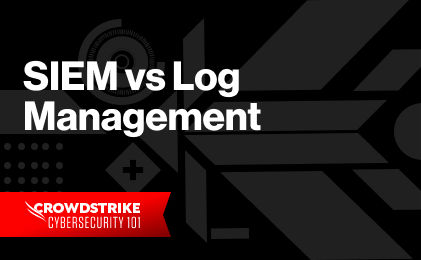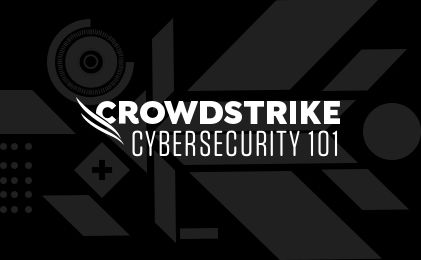Next-Gen SIEM for small business
Imagine running a small business and waking up one morning to find that the entire customer database has been compromised by malware. With tight budgets and limited technical resources to combat cyber threats, small businesses are increasingly finding themselves in the crosshairs of cybercriminals. In fact, 58% of cyber breaches impact businesses with fewer than 1,000 employees.
With cyber threats constantly evolving, it’s crucial for small businesses to equip themselves with the right security tools to safeguard their operations. Traditional security measures can be cumbersome and resource-intensive, but next-generation security information and event management (SIEM) solutions are tailored to provide robust security measures without overwhelming small business operations.
What is next-gen SIEM?
Initially designed to offer network visibility and identify traffic for the detection of malicious activity, SIEM has undergone a significant evolution since its introduction. In response to digital advancements like cloud computing, big data, and remote work models, the demand for advanced capabilities has fueled the evolution of next-gen SIEM solutions, extending visibility beyond traditional perimeters. And with the growing number of attacks on small and medium-sized businesses (SMBs), next-gen SIEM emerged to offer greater simplicity and automation to support the unique needs of SMBs.
Next-gen SIEM solutions offer a comprehensive suite of advanced security analytics, threat detection, and response capabilities. By integrating multiple security data sources — such as logs, network traffic, and endpoint telemetry — they provide a holistic view of an organization's security posture. Key features of a next-gen SIEM include real-time monitoring to detect threats as they emerge, automated response actions to rapidly remediate security issues, and advanced threat intelligence to proactively defend against evolving cyber threats. These capabilities not only enhance security operations but reduce the burden on small business owners and their IT teams, allowing them to focus on core business activities without compromising on security.
Benefits of next-gen SIEM in small business
The following are some benefits next-gen SIEM provides for small businesses:
Enhanced threat detection
Next-gen SIEM solutions harness the power of machine learning and behavior analytics to uncover sophisticated threats that traditional security measures might miss. By constantly analyzing patterns and anomalies across digital assets — like cloud workloads, network traffic, endpoint activity, and user behavior — next-gen SIEM promptly detects and alerts organizations to potential security incidents. This proactive approach empowers organizations to preemptively identify and respond to security threats, preventing issues before they escalate.
Cost-effective security
Given SMB security budget constraints, there's a clear priority for cost-effective security investments. Next-gen SIEM solutions address this need by offering enterprise-level security at a price that’s affordable for small businesses. Through the automation of various security processes, they alleviate the requirement for a sizable in-house security team, making comprehensive cybersecurity attainable for businesses with limited resources.
Simplified compliance
Navigating the maze of regulatory requirements can be daunting for small businesses, especially with limited resources. Next-gen SIEM solutions alleviate this burden by offering robust data retention and customizable dashboards and reports. These tools not only help small businesses meet compliance standards but streamline the process of generating compliance reports and maintaining essential security documentation.
Improved operational efficiency
For small businesses, operational efficiency is key to thriving in a competitive market. Next-gen SIEM solutions automate routine security tasks, freeing up valuable resources for other business activities. By reducing the time and effort spent on manual security processes, next-gen SIEM solutions empower businesses to allocate more attention and resources to their core objectives, driving innovation and success.
Cybersecurity Checklist for Small Business
Download this guide, which covers essential areas to fortify your business against cyber threats, including access control, data protection, employee training and more.
Download NowImplementing next-gen SIEM in small businesses
Assessing business needs
Implementing a next-gen SIEM solution begins with a thorough evaluation of a business's specific security needs. Small businesses must carefully consider factors such as budget constraints, compliance requirements, and existing IT infrastructure. This comprehensive assessment is crucial in selecting a solution that not only fits the financial requirements but aligns with regulatory obligations and integrates seamlessly with current systems. By taking the time to understand these elements, businesses can ensure they are investing in a solution that offers the best protection against cyber threats, ultimately safeguarding their future in an increasingly digital world.
Selecting the right next-gen SIEM solution
Choosing the right next-gen SIEM solution is crucial for small businesses looking to bolster their cybersecurity posture. It’s important to prioritize a solution that offers scalability, ease of use, and comprehensive support. Key features like user-friendly interfaces, real-time monitoring, and seamless integration capabilities should be at the forefront of the decision-making process. These attributes ensure that the next-gen SIEM can grow with the business, provide intuitive operation for staff, and work effectively within the existing IT environment.
Integrating with existing systems
Small businesses must ensure that the next-gen SIEM solution integrates seamlessly with current IT and security systems. Proper integration enables comprehensive security coverage and effective threat detection, leveraging existing infrastructure to maximize protection. By choosing a next-gen SIEM that works well with current systems, businesses can create a cohesive and robust cybersecurity framework.
Continuous monitoring and updating
Continuous monitoring and updating of a next-gen SIEM system help businesses adapt to evolving cyber threats swiftly and effectively. This ongoing vigilance ensures that the system remains responsive and capable of identifying and mitigating new security challenges as they arise. By staying proactive with the next-gen SIEM’s cybersecurity measures, organizations can maintain a robust defense against security threats, safeguarding operations and customer data with confidence.
Next-gen SIEM with CrowdStrike
For small businesses, investing in a next-gen SIEM solution is no longer a luxury — it's a necessity. These advanced systems offer powerful analytics, automation, and real-time monitoring that deliver robust security without draining limited resources. By adopting next-gen SIEM, small businesses can significantly bolster their security posture, ensure regulatory compliance, and confidently focus on growth and innovation, knowing their digital assets are protected.
At CrowdStrike, we provide the world’s leading AI-native platform for next-gen SIEM that empowers organizations to rapidly shut down threats with real-time detections, blazing-fast search, and cost-effective data retention.







